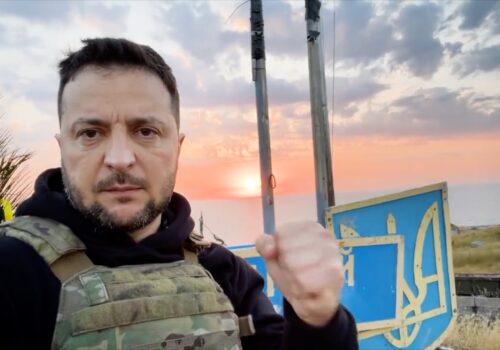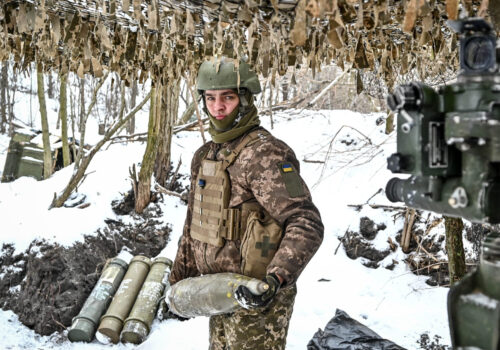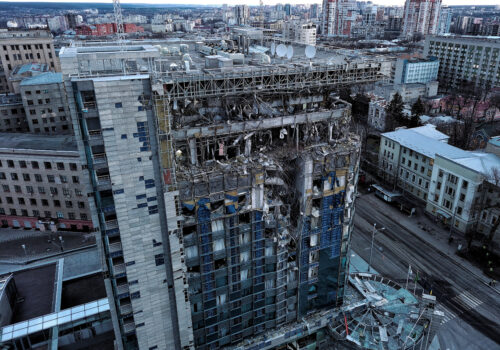
Putin accused of fast-tracking Russian citizenship for abducted Ukrainian kids

Ukrainian officials have condemned a new decree signed by Russian President Vladimir Putin in early 2024 simplifying the process of conferring Russian citizenship on Ukrainian children abducted from wartime Ukraine.
Issued on January 4, 2024, the citizenship decree is officially designed to ease the process of granting Russian citizenship to foreign nationals and stateless persons. Officials in Kyiv highlighted one particularly contentious section indicating that orphaned Ukrainian children or those deprived of parental guardianship can be fast-tracked to Russian citizenship via presidential decision or following a request from a hosting institution.
Ukraine’s Commissioner for Human Rights, Dmytro Lubinets, has accused Moscow of implementing the new citizenship regulations so children abducted from Ukraine to Russia would no longer be regarded as Ukrainians. In an official appeal to the International Criminal Court in the Hague, Ukraine’s Foreign Ministry claimed the decree served as further proof of Russia’s crimes against Ukraine, including “the forcible assimilation of Ukrainian children.”
Stay updated
As the world watches the Russian invasion of Ukraine unfold, UkraineAlert delivers the best Atlantic Council expert insight and analysis on Ukraine twice a week directly to your inbox.
The International Criminal Court has already issued a warrant for the arrest of Vladimir Putin on war crimes charges in connection with the mass deportation of Ukrainian children since the start of Russia’s full-scale invasion in February 2022. Putin has yet to be detained in line with the warrant, but the Russian dictator is now obliged to tailor his travel plans to avoid possible arrest. In August 2023, he cancelled plans to attend a BRICS summit in South Africa after the host country was unable to guarantee he would not face legal challenges.
Russia’s January 2024 citizenship decree is the latest evidence of a systematic Kremlin campaign to rob children abducted in Ukraine of their Ukrainian identity and forcibly turn them into Russians. The Ukrainian authorities have so far managed to identify almost 20,000 Ukrainian children who have been subjected to Russian abduction. Many fear the true number of victims may be far higher.
International investigations into the mass abduction of Ukrainian children have found that once taken to Russia, victims are subjected to indoctrination that aims to erase their Ukrainian identity and impose a Russian national identity. This process is undertaken at a network of camps across Russia. Research published by The Yale School of Public Health’s Humanitarian Research Lab (HRL) in February 2023 identified 43 Russian facilities for the indoctrination of abducted Ukrainian children, with all levels of the Russian government involved in a large-scale, state-sanctioned initiative.
The mass abduction and indoctrination of Ukrainian children by Russia has been branded as an act of genocide. In an April 2023 resolution, the Parliamentary Assembly of the Council of Europe said the abductions matched the international definition of genocide and stated that the forced transfer of Ukrainian children to Russia had the aim of “annihilating every link to and feature of their Ukrainian identity.” The UN’s 1948 Genocide Convention identifies “forcibly transferring children of the group to another group” as one of five acts that qualify as genocide.
Eurasia Center events

Evidence continues to emerge that in addition to exposing Ukrainian children to a wide range of patriotic propaganda, Russia is also militarizing them by involving them in various paramilitary structures aimed at teenagers. This includes the Yunarmiya (“Young Army”) youth organization, which was established in 2015 and is funded by the Kremlin. Deported Ukrainian children have reportedly been obliged to undergo military training and coerced into writing supportive letters to Russian military personnel engaged in the ongoing invasion of Ukraine.
In the first weeks of 2024, details emerged of abducted Ukrainian children being forced to undergo training with the Belarusian military. Belarusian state TV reported on January 10 that 35 children from Russian-occupied eastern Ukraine had been sent to Mogilev in eastern Belarus to take part in exercises with the Belarusian military. Belarus is accused of participating in Russia’s abduction operations.
Efforts are ongoing to rescue abducted Ukrainian children and bring those responsible for the abductions to justice. The Ukrainian state and civil society are currently focused on bringing every single victim home. These efforts are benefiting from significant international support. For example, in December 2023, six abducted Ukrainian children were released by Russia thanks to mediation from Qatar.
Further international support is needed if the thousands of Ukrainian children abducted by Russia are to be saved. The clock is ticking and every moment counts. Indoctrination efforts continue in camps across Russia, while the Kremlin is clearly seeking to speed up the process of granting Russian citizenship.
The international community appears to recognize the importance of holding Russia accountable for the mass abduction of Ukrainian children. “We cannot allow children to be treated as if they are the spoils of war,” ICC Prosecutor Karim Khan commented in 2023.
This year, it is vital to maintain the pressure on Russia and demonstrate that such behavior has no place in the modern world. The deliberate targeting of vulnerable Ukrainian children has been one of the most shocking features of an invasion that has stunned the world. The abductions are also arguably the most striking evidence that the Kremlin’s ultimate goal is to erase Ukrainian national identity entirely in areas under its control.
Vladyslav Havrylov is a research fellow with the Collaborative on Global Children’s Issues at Georgetown University and lead researcher at the “Where Are Our People?” initiative.
Further reading
The views expressed in UkraineAlert are solely those of the authors and do not necessarily reflect the views of the Atlantic Council, its staff, or its supporters.

The Eurasia Center’s mission is to enhance transatlantic cooperation in promoting stability, democratic values and prosperity in Eurasia, from Eastern Europe and Turkey in the West to the Caucasus, Russia and Central Asia in the East.
Follow us on social media
and support our work
Image: Russian President Vladimir Putin meets with participants and winners of The Family of the Year and This Runs in Our Family all-Russian family contests as part of the Family – Loved Ones forum during the Russia Expo international exhibition and forum at the VDNKh exhibition centre in Moscow, Russia January 23, 2024. (Sputnik/Sergei Karpukhin/Pool via REUTERS)




